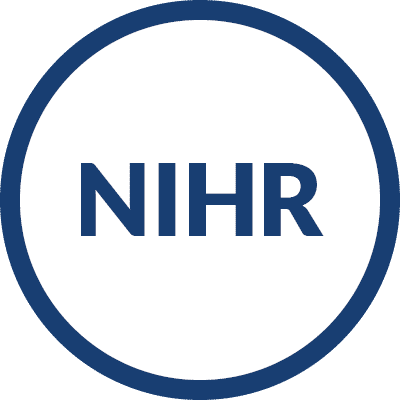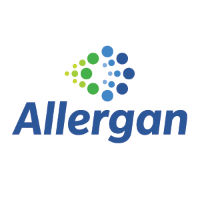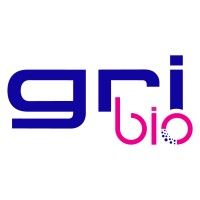Company reported $8.2 million in cash and cash equivalents at December 31, 2025 and raised additional $6.5 million in gross proceeds in January 2026 Balance sheet strengthened to fund operations into Q1 2027 Strong Phase 2a clinical data for GRI-0621 in idiopathic pulmonary fibrosis reinforce clinical proof-of-concept and therapeutic differentiation GRI-0803 focused on autoimmune indications with high unmet need advancing through IND-enabling activities LA JOLLA, CA, Feb. 04, 2026 (GLOBE NEWSWIRE) -- GRI Bio, Inc. (NASDAQ: GRI) (“GRI Bio” or the “Company”), a biotechnology company advancing an innovative pipeline of immune cell modulators for the treatment of inflammatory, fibrotic and autoimmune diseases today summarized recently reported Full Year 2025 financial results, provided an update on the Company’s current cash position and cash runway and summarized key clinical and corporate highlights. “In 2025, we prioritized disciplined clinical execution and balance sheet strength, delivering compelling clinical data from our lead IPF program which underscores the therapeutic differentiation of GRI-0621,” commented Marc Hertz, PhD, Chief Executive Officer of GRI Bio. “Entering 2026 with a strong cash position, we are focused on advancing GRI-0621 in IPF, progressing GRI-0803 toward the clinic and executing our clinical strategy with capital discipline to drive long-term value creation.” Recent Highlights Raised approximately $14.5 in gross proceeds in December 2025 and January 2026Strong cash position expected to fund planned operations into the first quarter of 2027Announced positive Phase 2a topline data from the completed Phase 2a clinical study of GRI-0621 in idiopathic pulmonary fibrosisReported additional data demonstrating suppression of pro-fibrotic immune phenotypes, reinforcing topline data and clinical proof-of-conceptGenerated new RNA-sequencing gene expression data demonstrating direct impact on the core biology of fibrosis and lung repairAdvanced plans to progress GRI-0803 into IND-enabling studies, expanding the Company’s pipeline in autoimmune disease Summary of Financial Results for the Year Ended December 31, 2025 As of December 31, 2025, the Company had cash and cash equivalents of approximately $8.2 million. Following the close of the quarter, the Company raised an additional $6.5 million in gross proceeds through the use of its At The Market offering. Based on the Company’s current operating plan, GRI Bio believes that its existing cash and cash equivalents will be sufficient to fund operating expenses and capital expenditure requirements into the first quarter of 2027.Net loss was $12 million for the year ended December 31, 2025. Research and development expenses were $6.8 million and $3.8 million for the years ended December 31, 2025 and 2024, respectively. The $3.0 million increase in research and development expenses was primarily due to increases of $2.9 million in expenses related to the registration development program of GRI-0621, $0.1 million in personnel expense, including stock-based compensation and a $0.1 million increase in consulting fees. General and administrative expenses were $5.2 million and $4.5 million for the years ended December 31, 2025 and 2024, respectively. The $0.7 million increase was primarily due to an increase of $0.7 million in personnel costs, including stock-based compensation expense. About GRI Bio, Inc. GRI Bio is a clinical-stage biopharmaceutical company focused on fundamentally changing the way inflammatory, fibrotic and autoimmune diseases are treated. GRI Bio’s therapies are designed to target the activity of key immune cells, such as Natural Killer T (“NKT”) cells, earlier in the inflammatory cascade to interrupt disease progression and restore the immune system to homeostasis. NKT cells are innate-like T cells that share properties of both NK and T cells and are a functional link between the innate and adaptive immune responses. Type I invariant NKT (“iNKT”) cells play a critical role in propagating the injury, inflammatory response, and fibrosis observed in inflammatory and fibrotic indications. GRI Bio’s lead program, GRI-0621, is an Immunomodulator and anti-fibrotic RARβγ agonist shown to inhibit the activity of key immune cells, like iNKT cell activity, along with anti-fibrotic and epithelial cell repair activity and is being developed as a novel oral therapeutic for the treatment of idiopathic pulmonary fibrosis, a serious disease with significant unmet need. The Company is also developing a pipeline of novel type 2 diverse NKT (“dNKT”) agonists for the treatment of serious autoimmune diseases with significant unmet need. Additionally, with a library of over 500 proprietary compounds, GRI Bio has the ability to fuel a growing pipeline. Forward-Looking Statements This press release contains “forward-looking statements” within the meaning of the “safe harbor” provisions of the Private Securities Litigation Reform Act of 1995. Forward-looking statements may be identified by the use of words such as “anticipate,” “believe,” “contemplate,” “could,” “estimate,” “expect,” “intend,” “seek,” “may,” “might,” “plan,” “potential,” “predict,” “project,” “target,” “aim,” “should,” “will,” “would,” or the negative of these words or other similar expressions. These forward-looking statements are based on the Company’s current beliefs and expectations. Forward-looking statements include, but are not limited to, statements regarding: the Company’s expectations with respect to development and commercialization of the Company’s product candidates, the timing of initiation or completion of clinical trials and availability of resulting data, the potential benefits and impact of the Company’s clinical trials and product candidates and any implication that the data or results observed in preclinical trials or earlier studies, topline or interim data or trials will be indicative of results of later studies or clinical trials or final data, that final data will be indicative of a proof-of-concept, the Company’s beliefs and expectations regarding potential shareholder value and future financial performance, the Company’s beliefs about the timing and outcome of regulatory approvals and potential regulatory approval pathways, the Company’s expected future milestones, shareholder value and the length of time the Company’s current resources will fund its planned operations (which current estimate assumes only initial preparatory activities for GRI-0621 as substantial additional capital or resources will be required to fund a Phase 2b clinical trial of GRI-0621). Actual results may differ from the forward-looking statements expressed by the Company in this press release and consequently, you should not rely on these forward-looking statements as predictions of future events. These forward-looking statements are subject to inherent uncertainties, risks and assumptions that are difficult to predict, including, without limitation: (1) the inability to maintain the listing of the Company’s common stock on The Nasdaq Capital Market and to comply with applicable listing requirements; (2) changes in applicable laws or regulations; (3) the inability of the Company to raise financing in the future; (4) the success, cost and timing of the Company’s product development activities; (5) the inability of the Company to obtain and maintain regulatory clearance or approval for its respective products, and any related restrictions and limitations of any cleared or approved product; (6) the inability of the Company to identify, in-license or acquire additional technology; (7) the inability of the Company to compete with other companies currently marketing or engaged in the development of products and services that the Company is currently developing; (8) the size and growth potential of the markets for the Company’s products and services, and their respective ability to serve those markets, either alone or in partnership with others; (9) that later data or clinical trials may be inconsistent with or contrary to data and observations to date, including that later data may not indicate a proof-of-concept or patient benefit; (10) inaccuracy in the Company’s estimates regarding expenses, future revenue, capital requirements and needs for and the ability to obtain additional financing; (11) the Company’s ability to protect and enforce its intellectual property portfolio, including any newly issued patents and its ability to obtain any expected patent term extensions, adjustments, exclusivities or disclaimers; and (12) other risks and uncertainties indicated from time to time in the Company’s filings with the U.S. Securities and Exchange Commission (the “SEC”), including the risks and uncertainties described in the “Risk Factors” section of the Company’s most recent Annual Report on Form 10-K filed with the SEC on January 30, 2026 and subsequently filed reports. Forward-looking statements contained in this announcement are made as of this date, and the Company undertakes no duty to update such information except as required under applicable law.Investor Contact:JTC Team, LLCJenene Thomas(908) 824-0775GRI@jtcir.com











